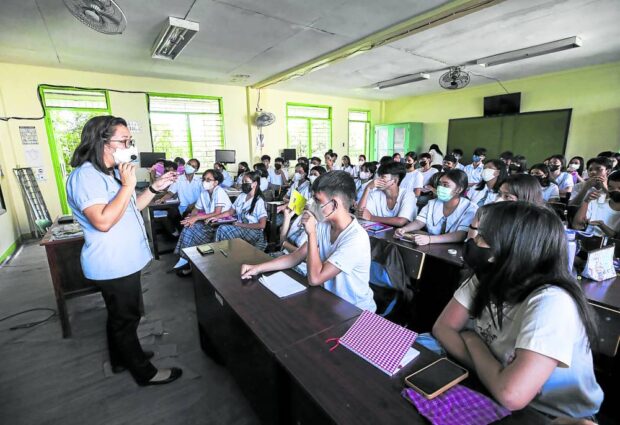UN backs bill giving teens more access to sexual, reproductive health services

MANILA, Philippines — The United Nations Population Fund (UNFPA) in the Philippines is backing the bid for a law that aims to curb adolescent pregnancies in the country.
This is by giving teenagers access to sexual and reproductive health services without being discriminated against.
UNFPA is the United Nations’ sexual and reproductive health agency.
On Thursday, it hailed the inching forward of the adolescent pregnancy prevention bill in the House of Representatives – “in light of the fact that teenage pregnancy was already declared a national social emergency.”
The proposed measure already secured the nod of the House committee on youth and sports development on Tuesday.
“UNFPA supports the pursuance of legislation that would expand the choices of adolescents to sexual and reproductive health services without discrimination,” UNFPA agency’s country representative Dr. Leila Saiji Joudane said in a statement.
She pointed out adolescent pregnancy is still among the biggest challenges faced by Filipino youth.
“UNFPA is looking forward to seeing the adolescent pregnancy bill approved by both chambers of Congress and enacted into law,” Joudane said.
She noted UNFPA is also closely following the developments of the bill’s counterpart in the Senate, which is awaiting second reading at the plenary.
Among the recommendations made by the agency in Congress deliberations on the proposed measure is the enhanced provision of Comprehensive Sexuality Education for children and adolescents (CSE).
According to UNFPA, CSE “enables young people to protect and advocate for their health, well-being, and dignity by providing them with a necessary tool kit of knowledge, attitudes, and skills.”
UNFPA is also pushing to give adolescents access to sexual and reproductive health services without parental consent.
Joudane said there is no evidence to show that access to contraception boosts adolescents’ sexual activity.
She cited data that deemed ineffective “an abstinence-only approach” to adolescent pregnancy.
“Programs that combine a focus on delaying sexual initiation with proper information on contraceptive use are more successful.
That is why it is important to accelerate the rollout of CSE nationally – to provide correct information to adolescents which will allow them to make informed and responsible decisions on their health,” Joudane said.
RELATED STORIES:
Numbers fall but PH teen pregnancies persist, mirror economic, learning gaps
More teen births involve older fathers – PSA